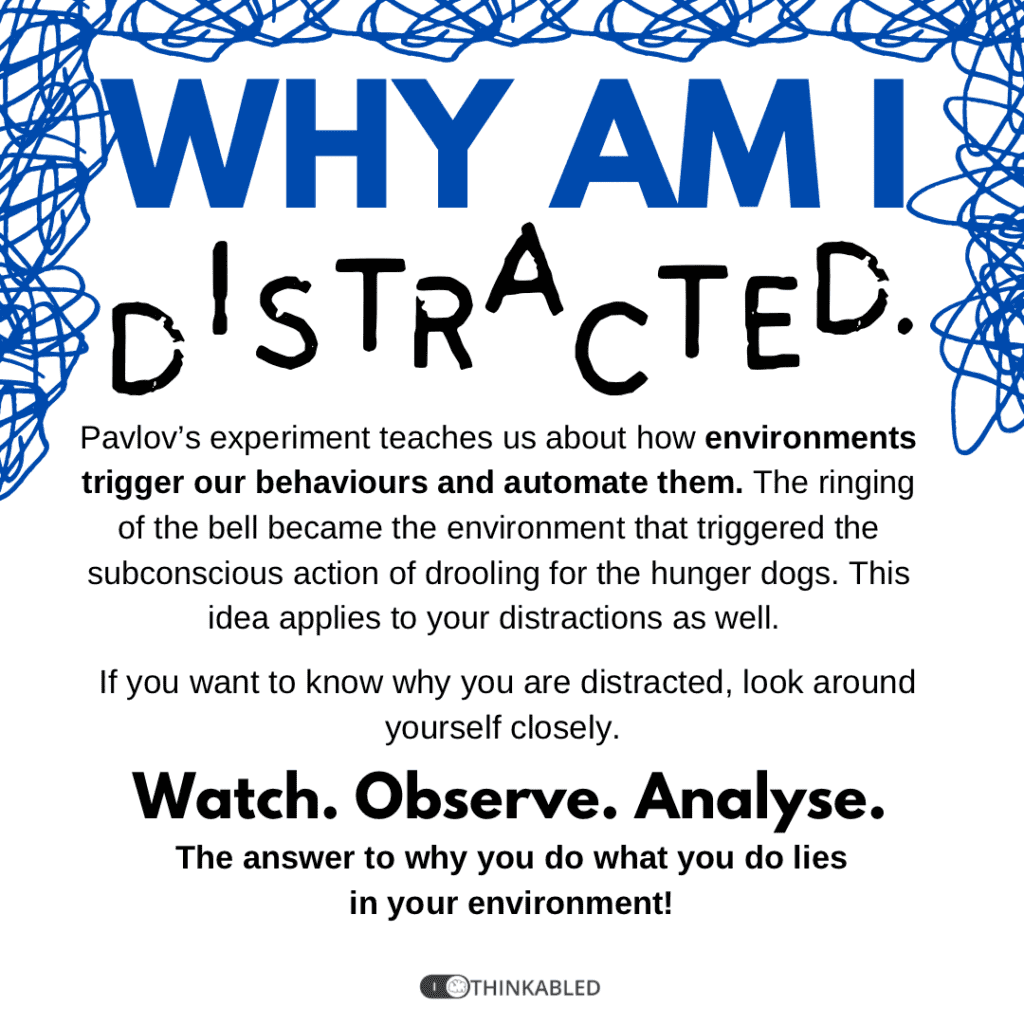Pavlov’s Experiment: The Reason Why You Are Distracted
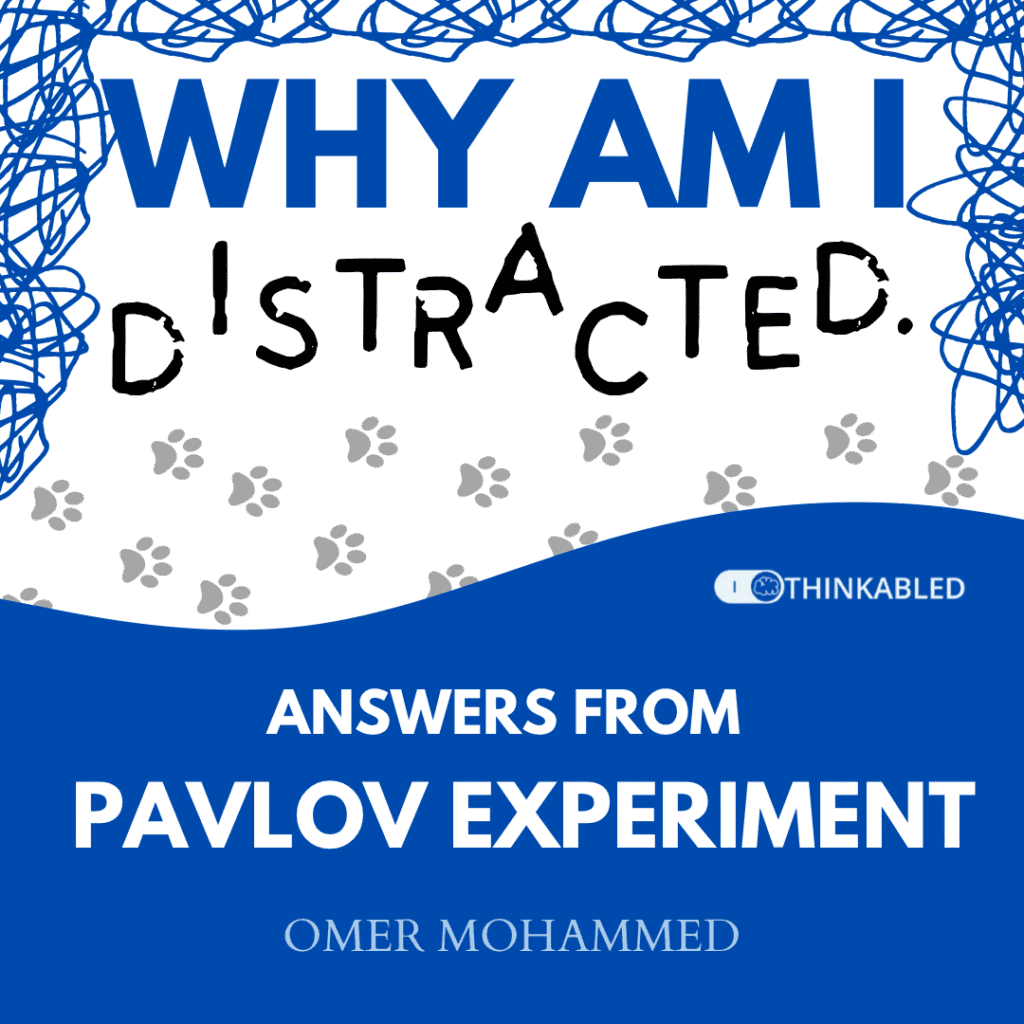
A Phone Call I Received Last Week
“Omer, I need your advice on something”. As those words swam through my ears through the vibrations of my smartphone, there was a sense of anxiety, a spark of coldness that took over me despite the warmth around me. What is he going to ask advice for? Why did he call me in particular? After all, I haven’t contacted him in months. He was one of those dear people in my life who drifted away with time as life moved on. Now, all of a sudden, he has called me for advice. Truly, it must be something serious. What has distracted him so much?
“Omer, should I leave home?” My anxiety heightened. What made him ask me this question? The last time I saw him, he was a nice guy who did college and ran errands to make some pocket money. I prayed to God that he was alright. “For what reason?” I asked in a voice that hid the fear beneath the words. “I am distracted. I can’t get my work done properly. I want to move away from here”. I breathed a sigh of relief. The tension was released. I could feel the warmth taking over the coldness on my toes and tips.
It was not as bad as I thought. My friend has a crucial examination awaiting him next month. The string of distractions surrounding him blocked his focus and attention over the important things that matter. He decided to call (not text) his “old-but-gold” friend for some words of wisdom and hope.
How do you think did I respond to him?
Conscious vs Subconscious Mind
Your environment matters. It influences everything you do. One may rightly ask, what constitutes an environment. Your environment is the total of what you surround yourself with. It includes both living and non-living things around you. It includes your roommate and your study table. It includes your pet and your bed. It includes your friends, boss, family, and your smartphone or house. The real question is why does it matter so much?
The answer lies in the power of your environment over your behavior. Human beings perform two kinds of actions daily: conscious actions and unconscious actions. The conscious actions are those that require active brain work. They involve our reason, intellect, logic, and thinking. They are high-energy actions that consume large amounts of glucose and involve the neocortex of our brain.
However, these conscious actions are few compared to the ocean of subconscious actions that a person does every day. We spent a lot of our life doing things subconsciously and passively. Our brains love them more than conscious actions. After all, these actions require low energy and glucose compared to complex thinking and reasoning. But how are these subconscious actions automated in our brain?
Every subconscious action is formed as a result of repetitive conscious action. It is the consistency of conscious actions which automates them inside our brain. This forms the basis of every habit, distraction, addiction, and behavior. The more you repeat an action consciously, the better the neuronal circuits in your brain become. The better the neuronal circuits in you’re brain, the more automated the action becomes. This is why an experienced driver can comfortably have a conversation while driving but an amateur cannot. This is why you can think about your passions and dreams while you bathe or brush your teeth as these actions are automated in your brain. When was the last time you consciously thought about the way you brush your teeth or tie your watch? Probably never.
The same principle applies to addictions and distractions. It is difficult to give up pornography or alcohol because it has been automated in your brain. Your subconscious mind yearns for it. It is your subconscious mind that is pushing your soul to scroll through your Instagram feed even though you don’t want to.
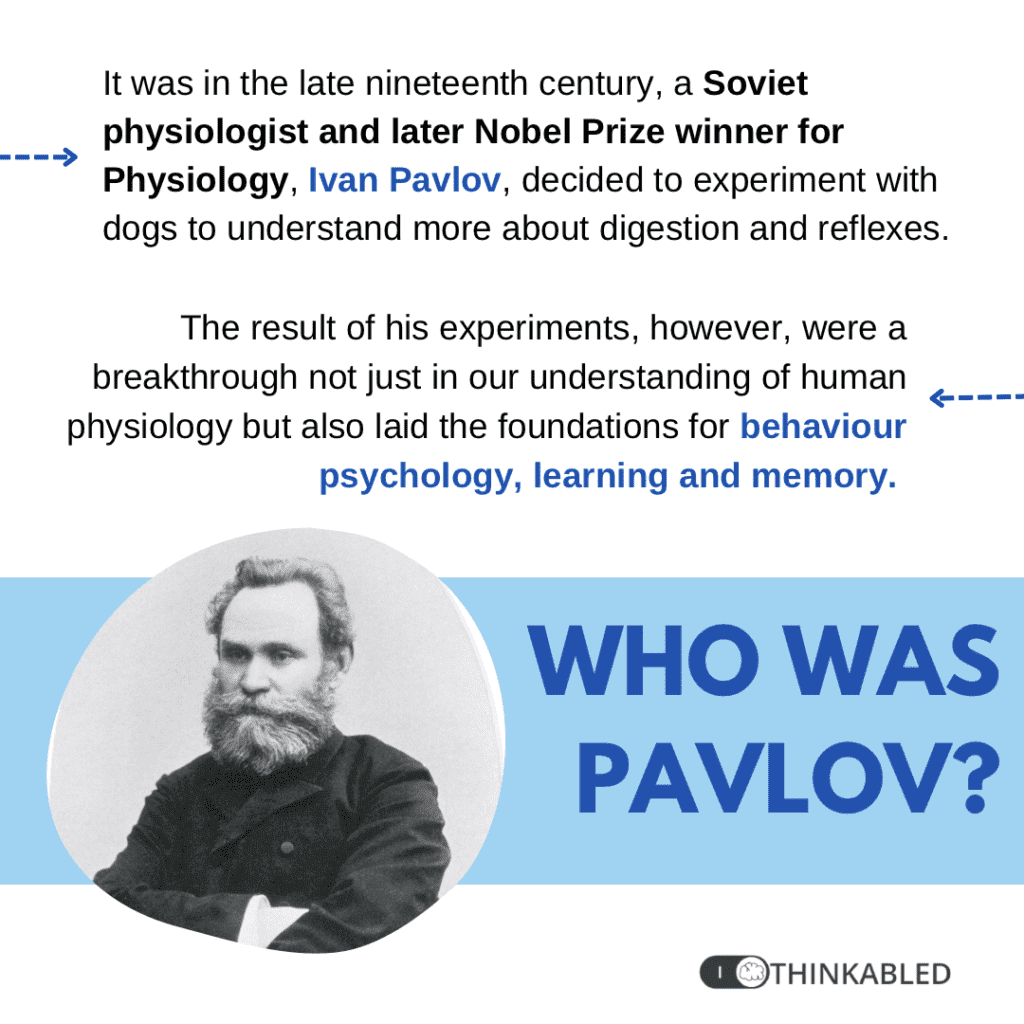
Revisiting Pavlov’s Experiment With Dog
What role does our environment play in the conversion of conscious actions into unconscious ones? Let’s revisit the famous Pavlov’s dog experiment to understand more.
It was in the late nineteenth century, that a Soviet physiologist and later Nobel Prize winner for Physiology, Ivan Pavlov, decided to experiment with dogs to understand digestion and reflexes. The result of his experiments was a breakthrough not just in our understanding of human physiology but also laid the foundations for behavior psychology, learning, and memory.
Pavlov knew that hungry dogs salivated unconsciously when their eyes caught the sight of food or sensed its smell (this applies to humans too and this is what we call informally “drooling”). He decided to ring a bell every time the food was placed in front of the hungry dogs. Over time, Pavlov noticed that the dogs started to salivate upon hearing the bell even when there was no food placed in front of them. This happened because the dogs learned to associate the bell with the food. The idea that the bell indicated the arrival of the food was established subconsciously in the minds of the hungry dogs. Pavlov called this “classical conditioning”.
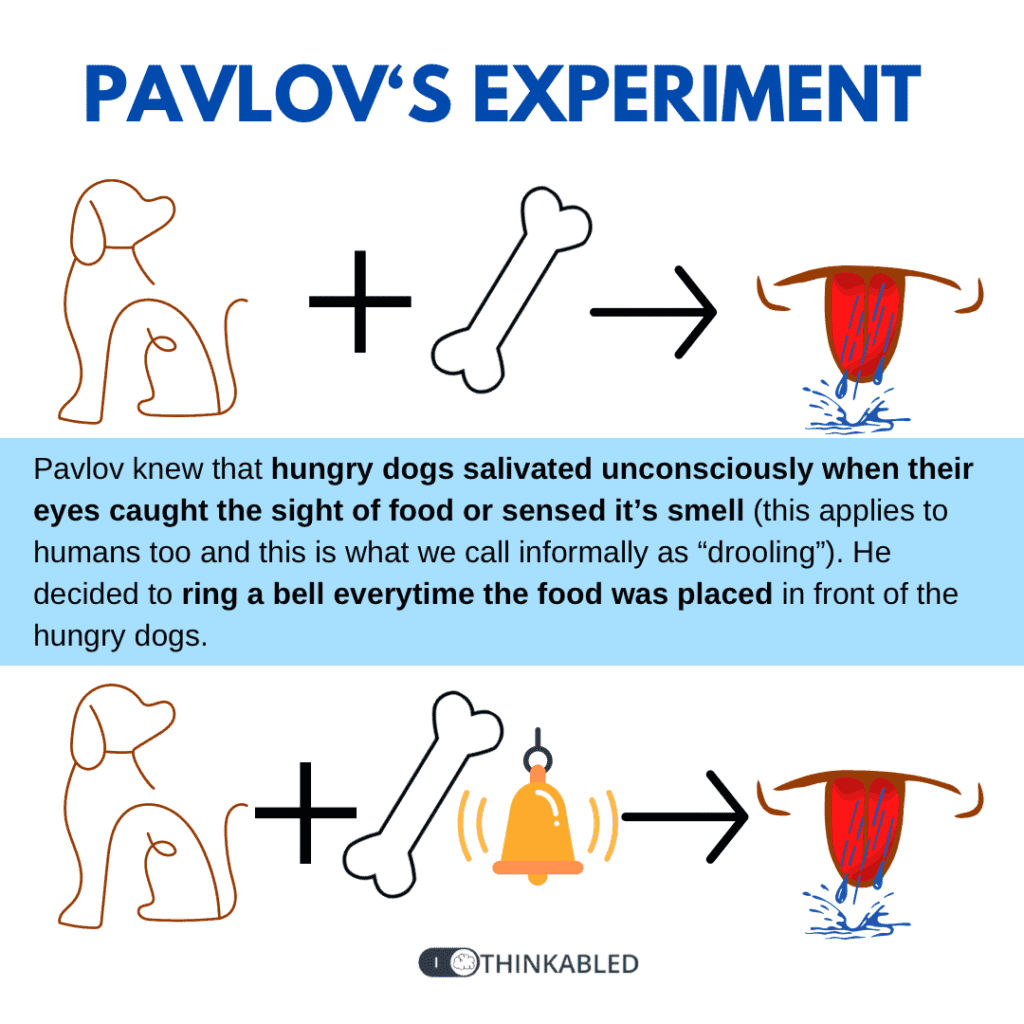
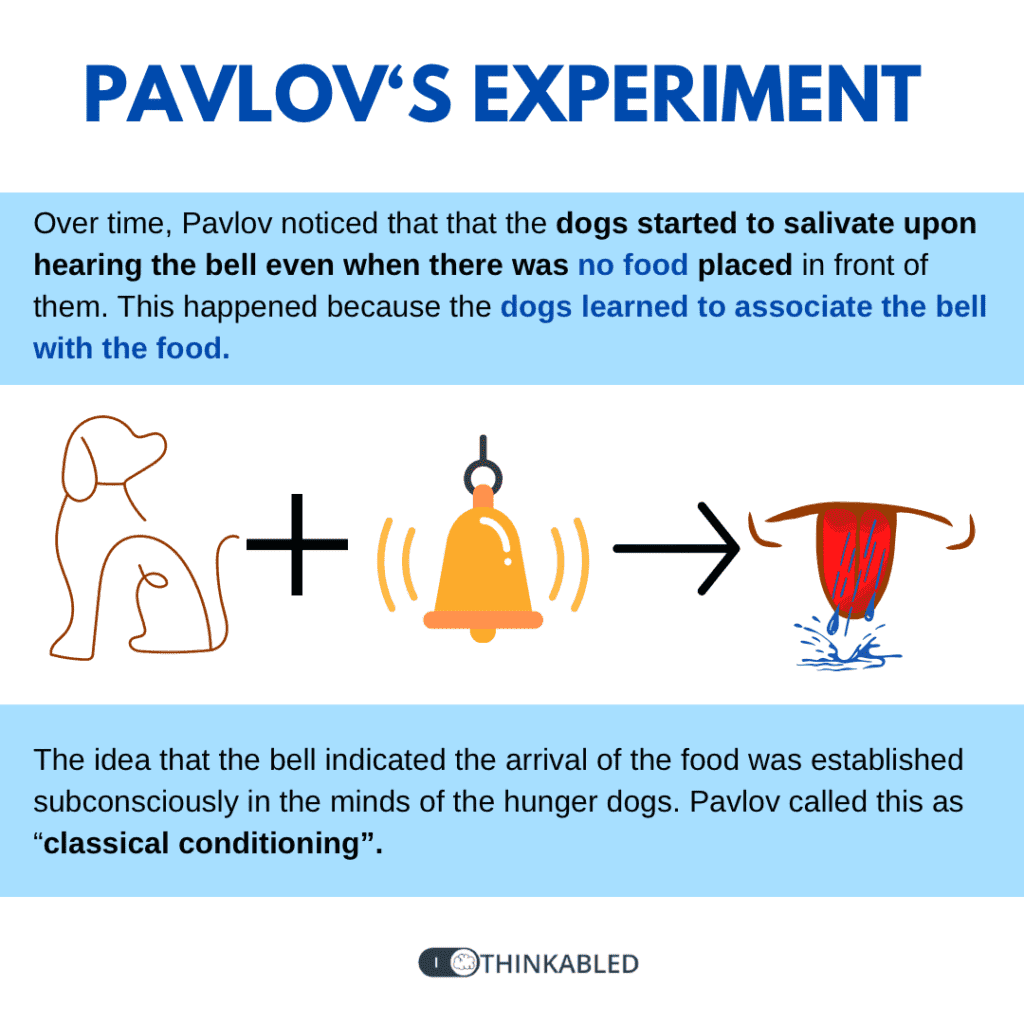
Rethinking Distractions with Pavlov’s Dogs
Pavlov’s experiment teaches us about how environments trigger our behaviors and automate them. The ringing of the bell became the environment that triggered the subconscious action of drooling for the hungry dogs. This idea applies to your distractions as well.
Your smartphone is the environment that triggers you to leave your study table. Your friends make the environment that triggers you to smoke. You are unable to learn attentively because of the music that is played on the radio placed behind you. In a nutshell, if you want to know why you are distracted, look around yourself closely. Watch. Observe. Analyze. The answer to why you do what you do lies in your environment!
The Cure For The Disease: Why Am I Distracted
The amazing thing about your environment is that it can be changed. This means that there is fortunately a solution to why you are distracted and how to change your life for betterment. The disease and its cure lie in your environment. How to design your environment to maximize your productivity and fight distractions is a topic that will be dealt with in a separate article. Click this link to know more in this regard.
The aim of this article is to show you why you are distracted. The first step to treatment is knowledge. Being distracted is a choice. So, the next time you feel distracted, open your eyes and look around!
